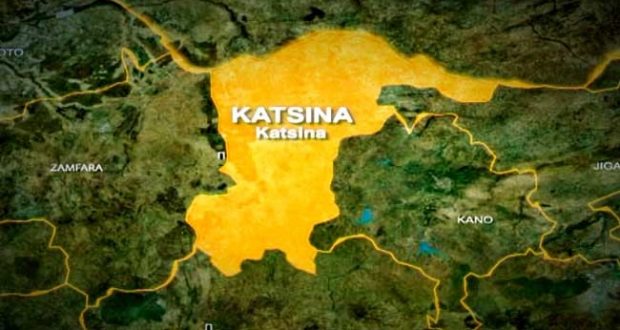Resurgence of banditry in Katsina – Punch
Katsina State is currently facing a torrid time as it gradually imbibes the bitter lesson about the futility of forging a peace pact with criminal groups. This follows a renewed offensive by bandits with whom it thought it had sealed a deal to keep the peace.
Barely a day after they attacked Tsauri, a community in Kafur Local Government Area, where many people were reportedly shot and houses raided, bandits on Monday last week invaded other communities in Malumfashi LGA. Among other victims, Umar Isah, a lecturer at the School of Basic and Remedial Studies, Funtua, unfortunately, was killed during one of the attacks.
Days later, as two teenage boys were settling down to enjoy a game of football at a viewing centre in Magama, gunmen struck again and their lives were snuffed out. Earlier on the same day, on the Jibia-Batsari Road in Jibia LGA, four Customs officers were abducted, alongside some motorists. The Customs officers who were manning a checkpoint were reportedly disarmed by motorcycle-riding bandits who escaped with their victims into the forest.
These are but a few incidents of what people experience in the hands of kidnappers and bandits in the North-West state of Katsina, a state under siege, where, a few months ago, the Governor, Aminu Masari, and some of his colleagues from that part of the country were thumping their chest and celebrating the return of peace following an amnesty granted to criminals. When Muhammadu Buhari visited the internally displaced people in the state on August 15, last year, the governor said the amnesty had paid off as the number of cases of banditry, kidnapping and cattle rustling had dropped drastically.
But recent events have since shown that the celebration was short-lived, merely a temporary respite. What else does one expect from a party to a peace process that negotiated from a position of weakness? Before the so-called peace negotiation and eventual amnesty, Katsina, alongside other North-West states, had been brought to its knees by bandits, who would invade communities in a convoy of hundreds of vehicles and motorcycles, everyone heavily armed. At some stage, the victims were informed in advance of an imminent strike.
Things got so bad that farmers could no longer go to their farms, for fear of either being killed or kidnapped. Some resorted to the payment of protection fees to be able to access their farms. Bandits would arrive at markets, shooting indiscriminately, and carting away whatever they could, after people might have been killed and others scampered off to safety. At a point, Musa Umar, the district head of Daura, Buhari’s hometown, was kidnapped in broad daylight by gun-wielding young men. The hapless man would eventually be rescued in Kano two months later.
As Abdulaziz Yari, a former governor of the neighbouring Zamfara State, suffering from the same fate, once said, “They (the bandits) are in control of the kind of weapons that the command in Zamfara State does not have. In one armoury alone, they have over 500 AK-47 (assault rifles); we saw it. Our people were even given the chance to take pictures.” This is humiliating, coming from non-state actors. They now dare the state that is supposed to have a monopoly of weapons of violence. It is a mark of complete breakdown of law and order, following the failure of state institutions, an unmistakable emblem of a failed and weak state.
During the supposed peace agreement, soldiers and the governor reportedly took pictures with the bandits, who were well armed, while the others were not. In such a situation, nobody needs to be told who was in charge. While the bandits may have surrendered a few weapons and released some of those kidnapped, they never failed to insist on the release of their arrested gang members as a condition for sheathing their sword.
To this, Masari said, “There are so many of them who have been in detention for more than two years… You cannot be keeping people for over two years without any charge.” While it is wrong to detain people without charging them with crime, it is obvious the governor spoke the way he did because he did not want to risk a continued confrontation with the battle-hardened bandits.
It was not surprising that after the whole amnesty, Kabir Abdullahi, a senator from Katsina State, spoke on the floor of the Senate, calling the attention of his colleagues to fresh killings in his state. He said bandits invaded Mara Zamfarawa in Danmusa LGA and Shimlida in Jibia LGA, killing 20 people. “Over 30 people were kidnapped and 10 vehicles burnt after looting all the belongings and goods of their victims,” he lamented.
It is high time the Nigerian state started acting like a state with all the powers and authority at its disposal. A state in the habit of granting amnesty to criminals is only advertising its helplessness. Criminals, like blackmailers, will always return to criminality. There is no state in Nigeria that has not suffered a relapse in criminality after the so-called amnesty which, sometimes, comes with cash reward to felons.
States should develop the capacity to deal with criminals because making deals with them is a sign of weakness. This is where state police becomes very relevant. In places with very rural communities, only local people, with good knowledge of the terrain, can effectively discharge the policing functions. This is why the South-West states should be commended for the launch of Operation Amotekun; it is a concept that other regions should embrace until state police eventually becomes a reality.
Besides, there is also the need for the deployment of technology in tracking criminals. The borders should be effectively policed to ensure that the invading criminals do not have free access into the country. Illegal guns should be mopped up. Nobody should be allowed to carry guns except those constitutionally empowered to do so.




